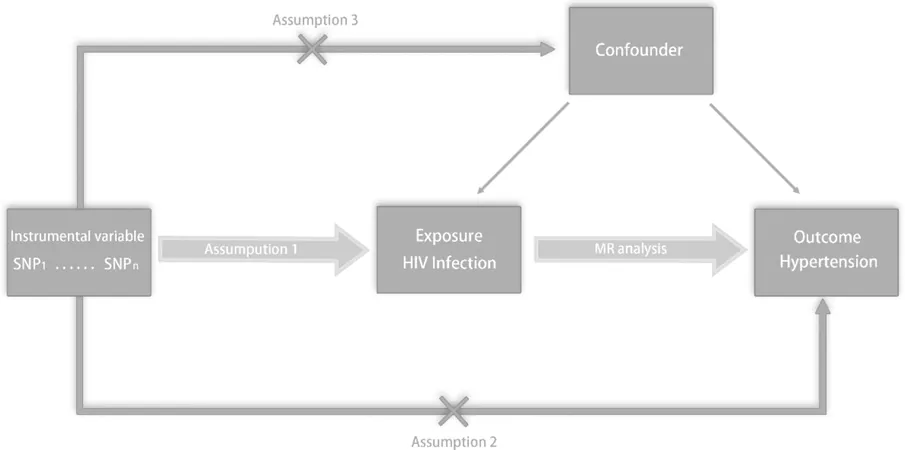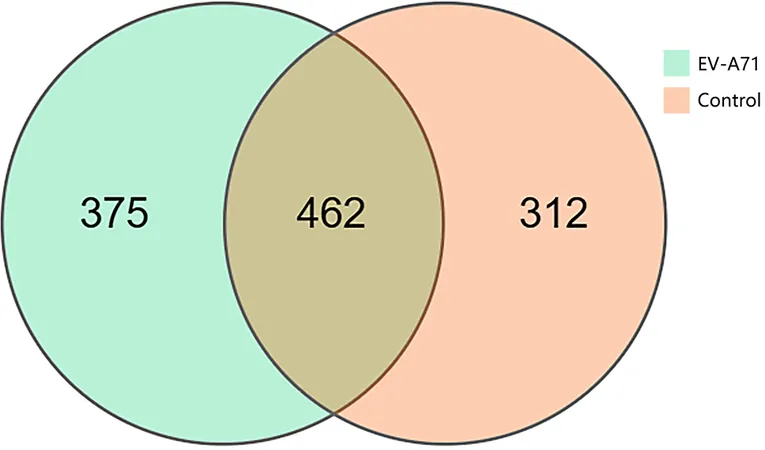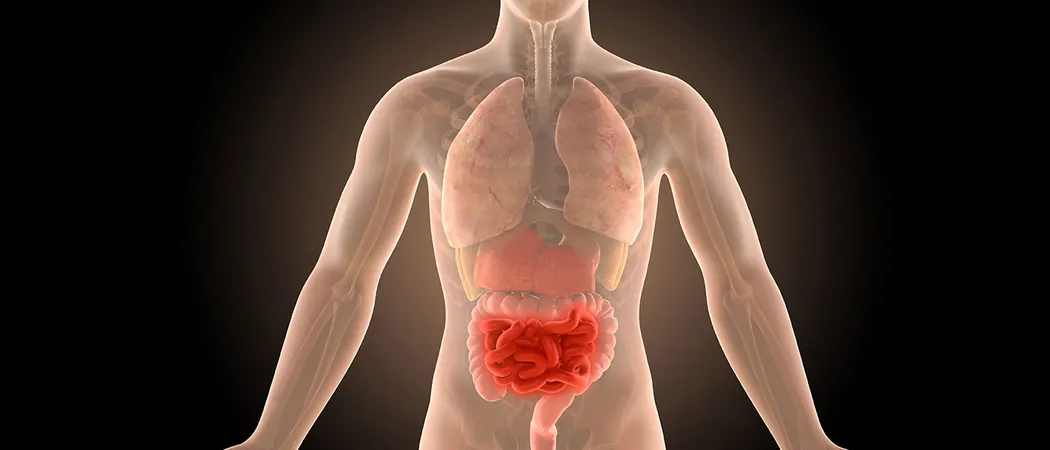
New Study Uncovers Alarming Link Between HIV Infection and Hypertension Risk!
2024-11-23
Author: Siti
Introduction
A groundbreaking new study has found compelling evidence suggesting a causal relationship between human immunodeficiency virus (HIV) infection and an increased risk of hypertension. While earlier research hinted at this connection, confounding factors often blurred the results. This study stands out by employing a robust methodology known as two-sample Mendelian randomization (MR) to delve deeply into the intricate interplay between these two significant health issues.
Study Overview
The primary objective of the research was to verify whether HIV infection causally influences the development of hypertension. Utilizing data from the OpenGWAS and FinnGen databases, the study comprised an extensive sample pool that included 357 individuals living with HIV and 218,435 healthy controls. For hypertension assessments, the study analyzed data from 54,358 hypertension patients against 408,652 controls, supplemented by a massive cohort of 436,424 subjects for blood pressure evaluations.
Research Methods
By leveraging various analytic methods, including inverse variance weighting (IVW), weighted median analysis, and Mr-Egger tests, the researchers honed in on their findings. They meticulously controlled for potential biases using Cochran’s Q test and rigorous sensitivity analysis. Notably, Bonferroni correction was implemented to mitigate the risk of false positives from multiple comparisons.
Results: The Alarming Findings
The analysis led to the identification of nine significant single-nucleotide polymorphisms (SNPs) as instrumental variables. Crucially, the study results indicated a strong causal link between HIV infection and hypertension, with statistical significance (IVW: OR = 1.001, P = 0.03). Further scrutiny revealed that HIV infection is associated with increased systolic (OR = 1.004, P = 0.01280) and diastolic blood pressure (OR = 1.004, P = 0.04570).
Moreover, a replication analysis reaffirmed the significant relationship between HIV infection and elevated diastolic blood pressure (weighted median: OR = 1.042, P = 0.037). The robustness of the findings was supported by consistent results across different analytical techniques, indicating a high degree of reliability.
Implications for Public Health
With hypertension being a major risk factor for severe cardiovascular conditions, understanding its potential connection to HIV is crucial. This insight is especially relevant for people living with HIV (PLWH), who are already considered a high-risk demographic for cardiovascular disease. By raising awareness of this potentially exacerbated risk, healthcare providers can take proactive measures in managing hypertension among PLWH and improve their overall quality of life.
Context: The Global Burden of Hypertension and HIV
Hypertension, characterized by elevated arterial pressure, poses a significant challenge to global health, particularly affecting populations in low and middle-income countries. The World Health Organization (WHO) reports that hypertension contributes to millions of annual deaths globally, and its incidence continues to rise, notably among populations in regions like China and India.
Additionally, as of December 2022, about 39 million people were living with HIV worldwide—a statistic projected to grow alongside the aging HIV-positive population. With effective treatments leading to longer lives for those affected, the long-term health consequences, such as hypertension, need urgent attention.
The Mechanisms Behind the Link
While the study highlights a correlation between HIV and hypertension, the underlying mechanisms remain complex and not fully understood. Factors such as the activation of the renin-angiotensin-aldosterone system (RAAS) and metabolic changes due to HIV may play significant roles. The activation of inflammatory pathways and potential alterations in immune responses further complicate this picture, necessitating further investigation.
Conclusion
This innovative study is paving the way for renewed understanding of the links between HIV infection and hypertension. As researchers gather more data, there is a pressing need for comprehensive studies to explore the causal mechanisms in greater detail. Public health strategies will benefit from considering these findings, emphasizing the importance of regular blood pressure monitoring and intervention efforts tailored for PLWH to mitigate this double health threat.
With more research, there may be hope to turn the tide on both HIV and hypertension, improving health outcomes for a vulnerable population. Stay informed, stay healthy, and keep an eye on these emerging health trends!




 Brasil (PT)
Brasil (PT)
 Canada (EN)
Canada (EN)
 Chile (ES)
Chile (ES)
 España (ES)
España (ES)
 France (FR)
France (FR)
 Hong Kong (EN)
Hong Kong (EN)
 Italia (IT)
Italia (IT)
 日本 (JA)
日本 (JA)
 Magyarország (HU)
Magyarország (HU)
 Norge (NO)
Norge (NO)
 Polska (PL)
Polska (PL)
 Schweiz (DE)
Schweiz (DE)
 Singapore (EN)
Singapore (EN)
 Sverige (SV)
Sverige (SV)
 Suomi (FI)
Suomi (FI)
 Türkiye (TR)
Türkiye (TR)